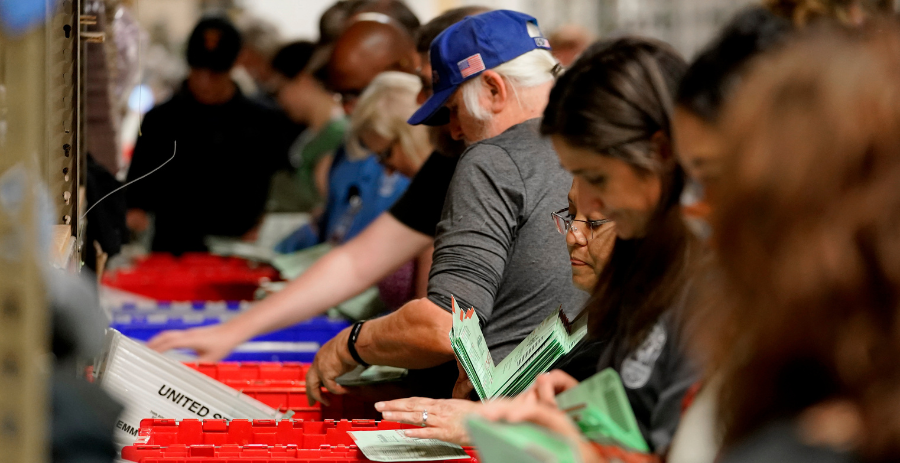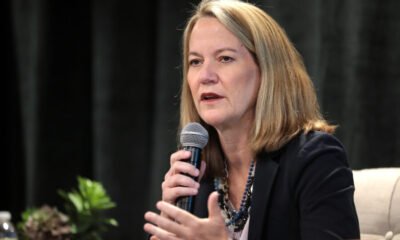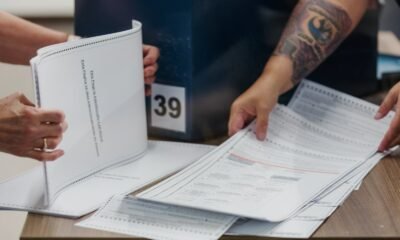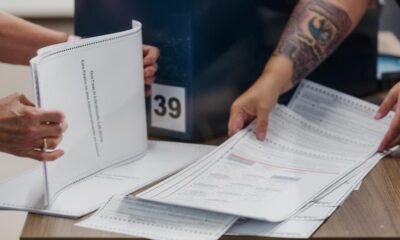arizona
Groups Take Legal Action to Purge Illegal Voters from Election Rolls

An Arizona organization is taking legal action against all 15 county recorders, alleging negligence in their duties to ensure only citizens cast votes. The Strong Communities Foundation of Arizona filed the lawsuit on September 4, citing concerns about illegal voters in the state.
The group claims that recorders are failing to perform necessary “list maintenance” on voter rolls as mandated by both state and federal laws. Represented by former Donald Trump adviser Stephen Miller, the organization has brought these issues to the attention of U.S. District Court Judge Susan Bolton.
The lawsuit demands that the judge compel the recorders to conduct mandatory checks to verify voter eligibility. Additionally, they are requesting that a list of individuals who registered without proof of citizenship be provided to Attorney General Kris Mayes.
Maricopa County Recorder Stephen Richer, the first target of the lawsuit, has publicly denied any wrongdoing by his office. The expanded legal action follows a series of letters from America First Legal, which has urged the remaining county recorders to adhere to the law as interpreted by attorney James Rogers.
Rogers stated, “The defendants have ignored these requirements,” claiming that the county officials are not fulfilling their legal obligations to remove foreign citizens from voter rolls. He emphasized that these failures undermine public confidence in the electoral process.
In response to questions about the lawsuit, Governor Katie Hobbs criticized the challengers for disrupting the electoral process. “It’s unconscionable that folks are trying to, as we head into this important election season, upend how we do elections,” she asserted.
The legal dispute centers around the National Voter Registration Act, which permits voter registration without the stringent proof of citizenship required by Arizona state law. Individuals who register using the federal form can only vote in presidential and congressional elections. Currently, over 41,000 voters are registered under these conditions in a state with over 4.1 million registered voters.
While Rogers acknowledges the stipulations of federal law, he maintains that election officials have an affirmative duty to utilize various resources to clean their voter rolls of non-citizens. “Foreign citizens do register to vote,” he claimed.
Miller affirmed the commitment of America First Legal to combat illegal voting and foreign influence in elections. However, the lawsuit draws on examples from other states, where election officials reported purging foreign voters, yet it lacks direct evidence of similar occurrences in Arizona.
Hobbs expressed skepticism about the citizenship of the individuals registered federally, emphasizing that many may lack the necessary documentation at registration but are still eligible voters. “Our systems ensure that every voter who’s registered is eligible to vote,” she insisted.
The Secretary of State’s Office echoes this sentiment, clarifying that federal-only ballots are often utilized by populations such as Native Americans, college students, and the elderly, who may have difficulty accessing citizenship proof.
Pima County Recorder Gabriella Cazares-Kelly, when asked about the lawsuit, referred to a prior letter outlining her office’s procedures to verify eligibility for those registering with the federal form. She challenges the accusations, stating, “Reality has proven that, as a general rule, those who are not citizens do not register to vote.”
Cochise County Recorder David Stevens opted not to comment amid the ongoing litigation against him.


















